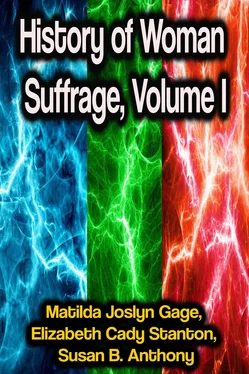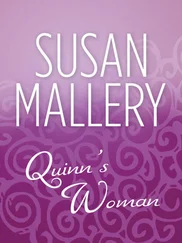In the war of 1812 two young girls of Scituate, Rebecca and Abigail W. Bates, by their wit and sagacity, prevented the landing of the enemy at this point.[29] Congress, during its session of 1880, nearly seventy years afterward, granted them pensions, just as from extreme age they were about to drop into the grave.
Though it is not considered important to celebrate the virtues of the Pilgrim Mothers in gala days, grand dinners, toasts, and speeches, yet a little retrospection would enable us to exhume from the past, many of their achievements worth recording. More facts than we have space to reproduce, testify to the heroism, religious zeal, and literary industry of the women who helped to build up the early civilization of New England. Their writings, for some presumed on authorship, are quaint and cumbrous; but in those days, when few men published books, it required marked courage for women to appear in print at all. They imitated the style popular among men, and received much attention for their literary ability. Charles T. Congdon, as the result of his explorations through old book-stores, has brought to light some of these early writers.
In 1630, Mrs. Anne Bradstreet, known as quite a pretentious writer, came to Boston with her husband, Simon Bradstreet, Governor of Massachusetts. Her first work was entitled "The Tenth Muse lately sprung up in America." The first edition was published in London in 1650, and the first Boston edition was published in 1678. If Mrs. Bradstreet loved praise, she was fortunate in her time and position. It would have been in bad taste, as it would have been bad policy, not to eulogize the poems of the Governor's wife. She was frequently complimented in verse as bad as her own. Her next great epic was entitled "A Complete Discourse and Description of the Four Elements, Constitutions, Ages of Man, Seasons of the Year, together with an exact epitome of the Four Monarchies, viz: the Assyrian, Persian, Grecian, and Roman." "Glad as we were," says the owner, "to obtain this book at a considerable price, we are still gladder of the privilege of closing it." Although this lady had eight children, about whom she wrote some amusing rhymes, she found time in the wilds of America to perpetuate also these ponderous-titled poems.
Phillis Wheatly, a colored girl, also wrote poetry in Colonial Boston, years before our Declaration of Independence startled the world. She was brought from Africa, and sold in the slave market of Boston, when only six years old. Mr. Sparks, the biographer of Washington, thinks "that the poems contained in her published volume, exhibit the most favorable evidence on record, of the capacity of the African intellect for improvement." When the Rev. George Whitefield died, at Newburyport, Mass., in 1770, the same writer from whom we quote these facts, says: "It was quite natural, his demise being much talked of in religious families, that our sable Phillis should burst into monody. That expression of grief I have before me. Of the most rhetorical preacher of his age, it is not inspiring to read:
"He prayed that grace in every heart might dwell.
He louged to see America excel."
Phillis married badly, and died at the age of thirty-one, in 1784, utterly impoverished, leaving three little children. Her own copy of her poems is in the library of Harvard College. When she died it was sold for her husband's debts.
In a letter thanking her for an acrostic on himself, General Washington said: "If you should ever come to Cambridge, or near headquarters, I shall be happy to see a person so gifted by the muses, and to whom Nature has been so liberal and beneficent in her dispensations."
Was there ever any story, which had such a hold upon the readers of a generation, as "Charlotte Temple"? It is said 25,000 copies were sold soon after publication—an enormous sale for that day. Mrs. Rowson, who wrote the book, was a daughter of a lieutenant in the Royal Navy; she was an actress in Philadelphia, and afterward kept a school in Boston for young ladies, where she died, in 1824. Her seminary was highly recommended.
Women in the last age naturally drifted into the didactic. They should have the credit of trying always to be useful. They go through so many pages, seeking to give the little people some notion of botany, of natural history, of other branches of human intelligence. There is no book cleverer in its way than Miss Hannah Adams' "History of New England," of which the second edition was published in Boston in 1807. The object of this lady was, as she tells us in the preface, "to impress the minds of young persons with veneration for those eminent men to whom their posterity are so highly indebted." All the tradition is that Miss Adams was a wonderfully learned lady. She is best known by her "History of the Jews." She wrote pretty good English, of which this may be considered a specimen: "Exalted from a feeble state to opulence and independence, the Federal Americans are now recognized as a nation throughout the globe." To a sentence so admirably formed, possibly there is nothing to add.
MISTRESS ANNE HUTCHINSON.
Mistress Anne Hutchinson, founder of the Antinomian party of New England, was a woman who exerted great influence upon the religious and political free thought of those colonies. She was the daughter of an English clergyman, and with her husband, followed Pastor Cotton, to whom she was much attached, to this country in 1634, and was admitted a member of the Boston church, becoming a resident of Massachusetts one hundred and forty years before the Revolutionary war. She was of commanding intellect, and exerted a powerful influence upon the infant colony.
It was a long established custom for the brethren of the Boston church to hold, through the week, frequent public meetings for religious exercises. Women were prohibited from taking part in these meetings, which chafed the free spirit of Mistress Hutchinson, and soon she called meetings of the sisters, where she repeated the sermons of the Lord's day, making comments upon them. Her illustrations of Scripture were so new and striking that the meetings were rendered more interesting to the women than any they had attended. At first the clergy approved, but as the men attracted by the fame of her discourses, crowded into her meetings, they began to perceive danger to their authority; the church was passing out of their control. Her doctrines, too, were alarming. She taught the indwelling of the Holy Spirit in each believer, its inward revelations, and that the conscious judgment of the mind should be the paramount authority. She was the first woman in America to demand the right of individual judgment upon religious questions. Her influence was very great, yet she was not destined to escape the charge of heresy.
The first Synod in America was called upon her account. It convened August 30, 1637, sat three weeks, and proclaimed eighty-two errors extant; among them the tenets taught by Mistress Hutchinson. She was called before the church and ordered to retract upon twenty-nine points. The infant colony was shaken by this discussion, which took on a political aspect.[30] Mistress Hutchinson remained steadfast, and was sustained by many important people, among whom was the young Governor Vane.
Church and State became united in their opposition to Mistress Anne Hutchinson. The fact that she presumed to teach men, was prominently brought up, and in November, 1637, she was arbitrarily tried before the Massachusetts General Court upon a joint charge of sedition and heresy. She was examined for two days by the Governor and prominent members of the clergy. The Boston Church, which knew her worth, sustained her, with the exception of five members, one of them the associate pastor, Wilson. But the country churches and clergy were against her, and she was convicted and sentenced to imprisonment and banishment.
Читать дальше












